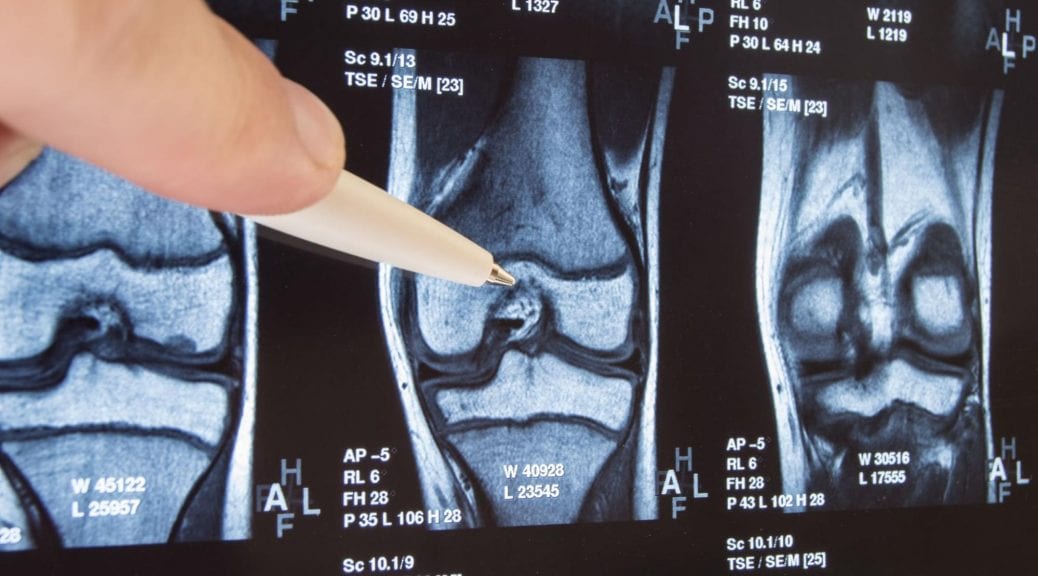There is some confusion when it comes to finding a medical specialist. Many different fields of medicine have a certain degree of overlap, making it difficult to decide which specialist to go to. At Paris Orthopedic, some of our specialties include bone and joint health, making our field of orthopedic medicine coincide with some elements of rheumatology. To help you make the best decision for your health, we’re explaining the key differences between these two disciplines of medicine to help you discern whether to see a rheumatologist or an orthopedic doctor.
What Does a Rheumatologist Do?
One of the most significant differences between a rheumatologist and an orthopedic doctor is their specialty when it comes to treating arthritis and joint pain. Rheumatologists focus on the internal medical aspects of inflammatory autoimmune disorders, including the causes, the impact on the body, and any necessary treatments. While rheumatologists are experts in all types of arthritis conditions, they also research and treat other conditions, including fibromyalgia, gout, and lupus. Because many of these autoimmune disorders attack the body’s connective tissues, musculoskeletal system, and organs, a rheumatologist can make a diagnosis and provide applicable non-surgical treatments.
What Does an Orthopedic Doctor Do?
Orthopedists, on the other hand, specialize in the disorders, injuries, prevention, treatment, and repair associated with the skeletal system. Both orthopedic doctors and surgeons are specially trained in the diagnosis and treating bone and joint disease. Treatments administered by orthopedists include but are not limited to non-surgical options such as physical therapy and prescription medication. In certain cases, surgeries like joint replacement procedures can relieve pain and improve mobility. If surgery becomes necessary, an orthopedic specialist is the provider for the job.
Deciding What’s Best for You
Deciding between an orthopedic doctor and a rheumatologist starts by identifying the root of the issue. The most significant overlap between these two specialties is arthritis’s role as both an inflammatory autoimmune disorder and an effect on the musculoskeletal system. While a rheumatologist may help identify what is causing your joint pain and help discern whether the cause is arthritis or a different autoimmune disorder, an orthopedic doctor can provide more treatment options. Orthopedic doctors are especially knowledgeable when it comes to joint pain following trauma or helping to treat joints that have suffered prolonged wear and tear from arthritis or other conditions.
The Paris Orthopedics Difference
At Paris Orthopedics, we prioritize exhausting all non-surgical options before proceeding with surgical treatments. This means that there may be additional overlap between the treatments provided by a rheumatologist, such as physical therapy, bracing, cortisone injections, and anti-inflammatory drugs. If your condition doesn’t respond to these initial treatment methods, our team can discuss surgical options with you, ranging from minimally invasive procedures to open surgery. If joint replacement is ultimately the most effective option, you can rest assured that you’ll receive the best care at Paris Orthopedics. With this procedure, you can look forward to less pain, improved mobility, and restored joint function.
Consult an Orthopedic Specialist
The team at Paris Orthopedics and Sports Medicine is dedicated to helping our patients recover from a wide range of orthopedic conditions. Our services include general orthopedic medicine, joint replacement, sports injury treatment, and osteoporosis treatments at our bone health clinic. If you have questions about bone health, arthritis, or whether to see a rheumatologist or an orthopedic doctor for your joint pain, call (903) 737-0000 to make an appointment.



